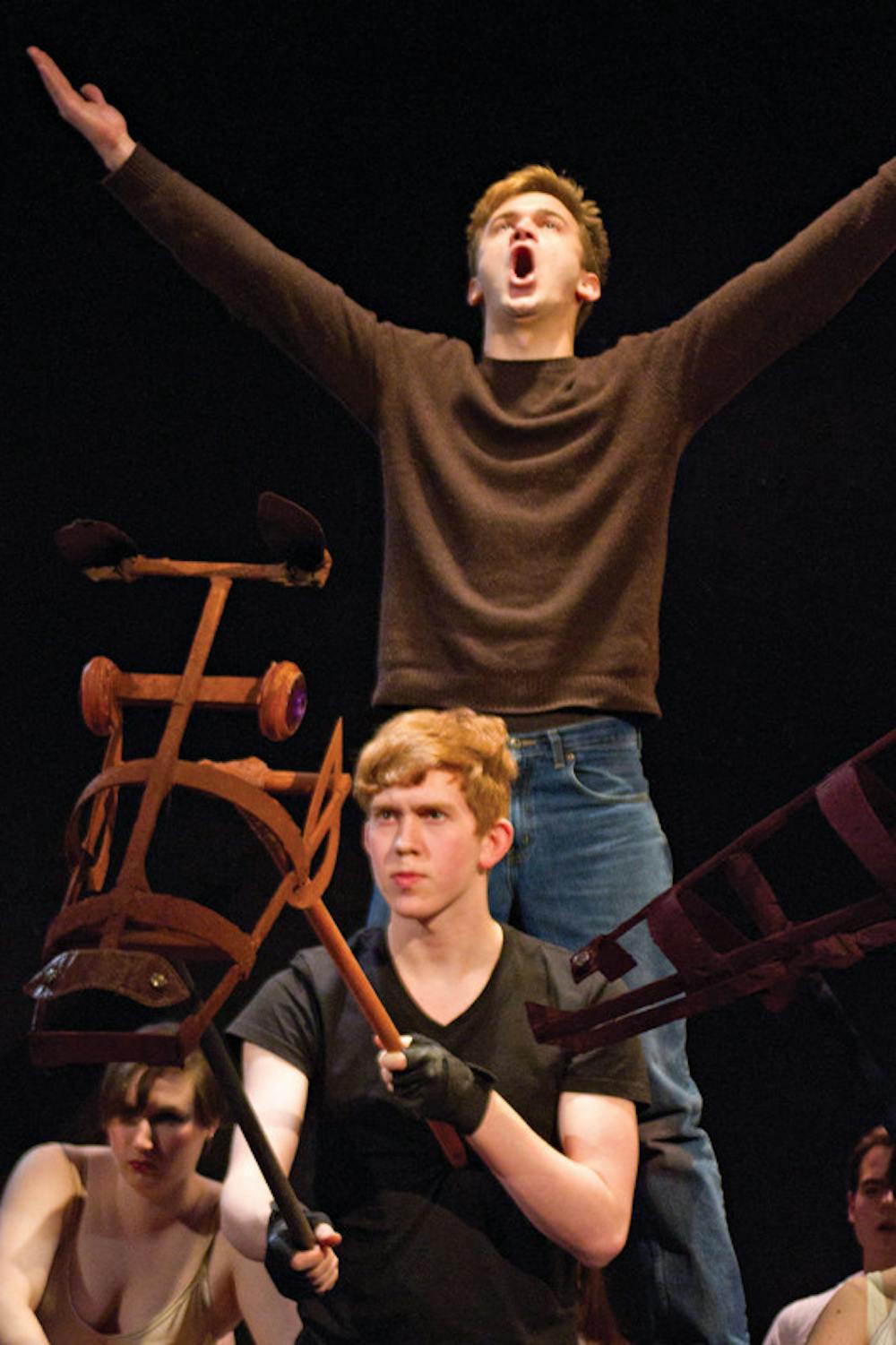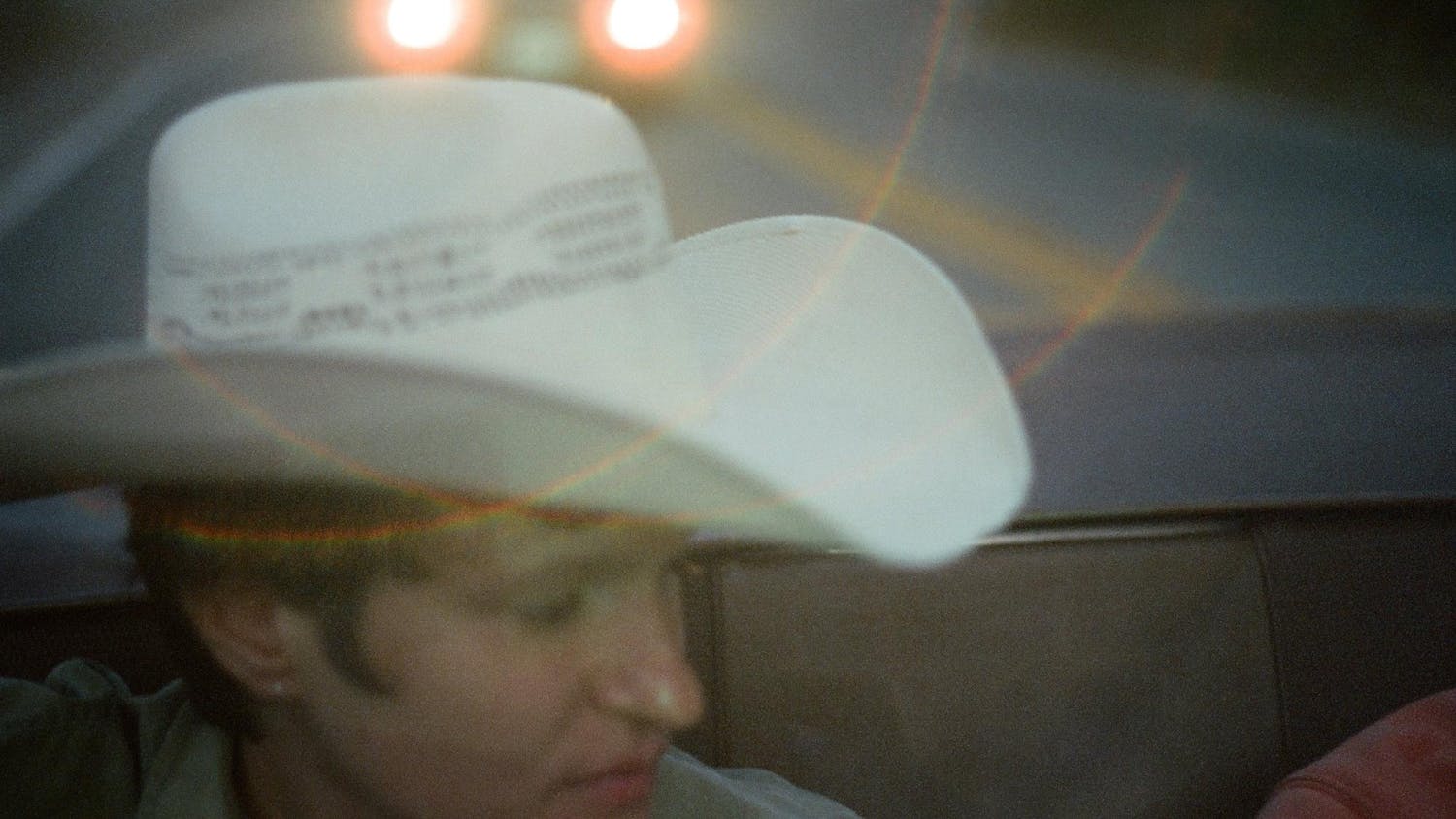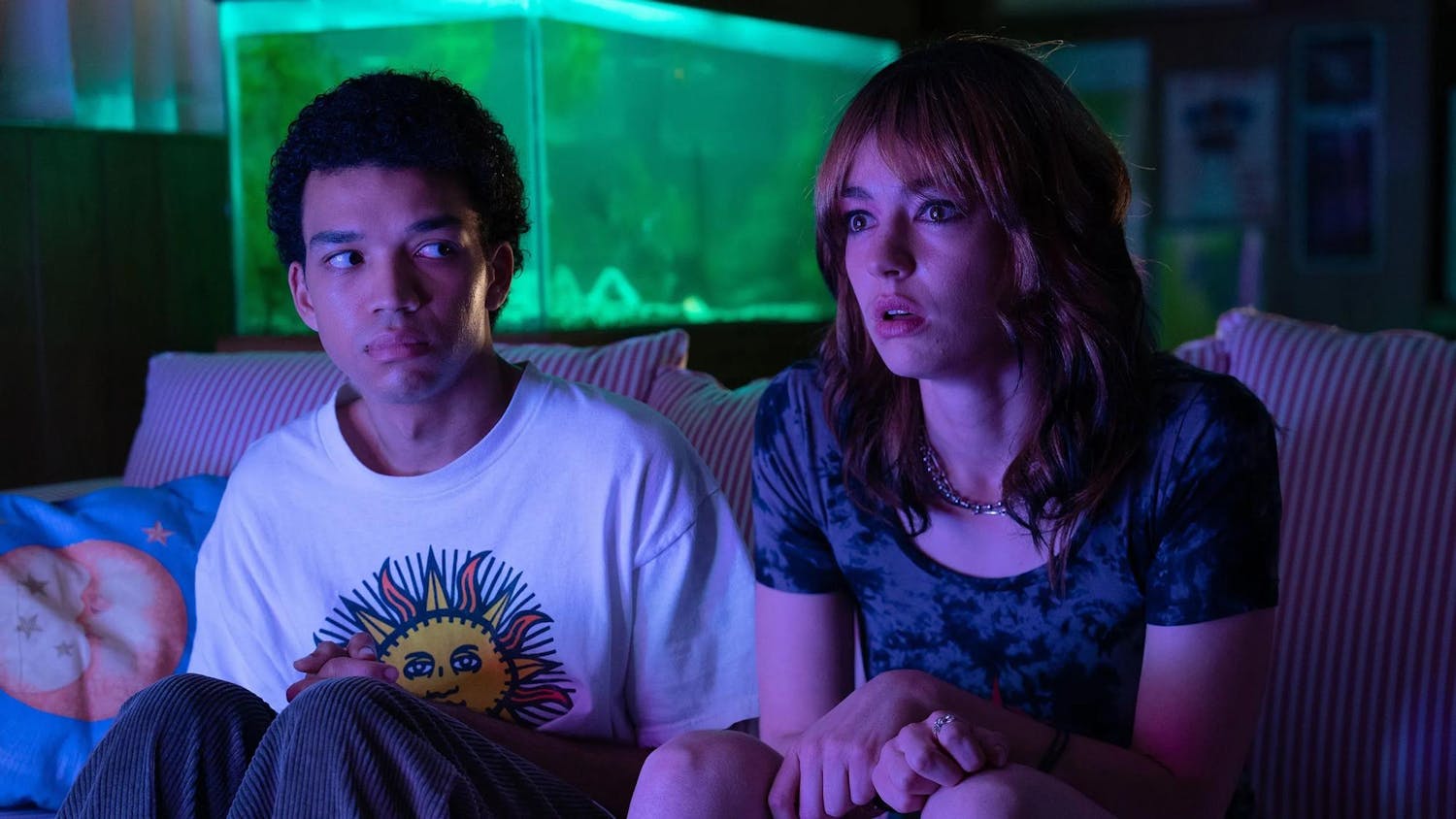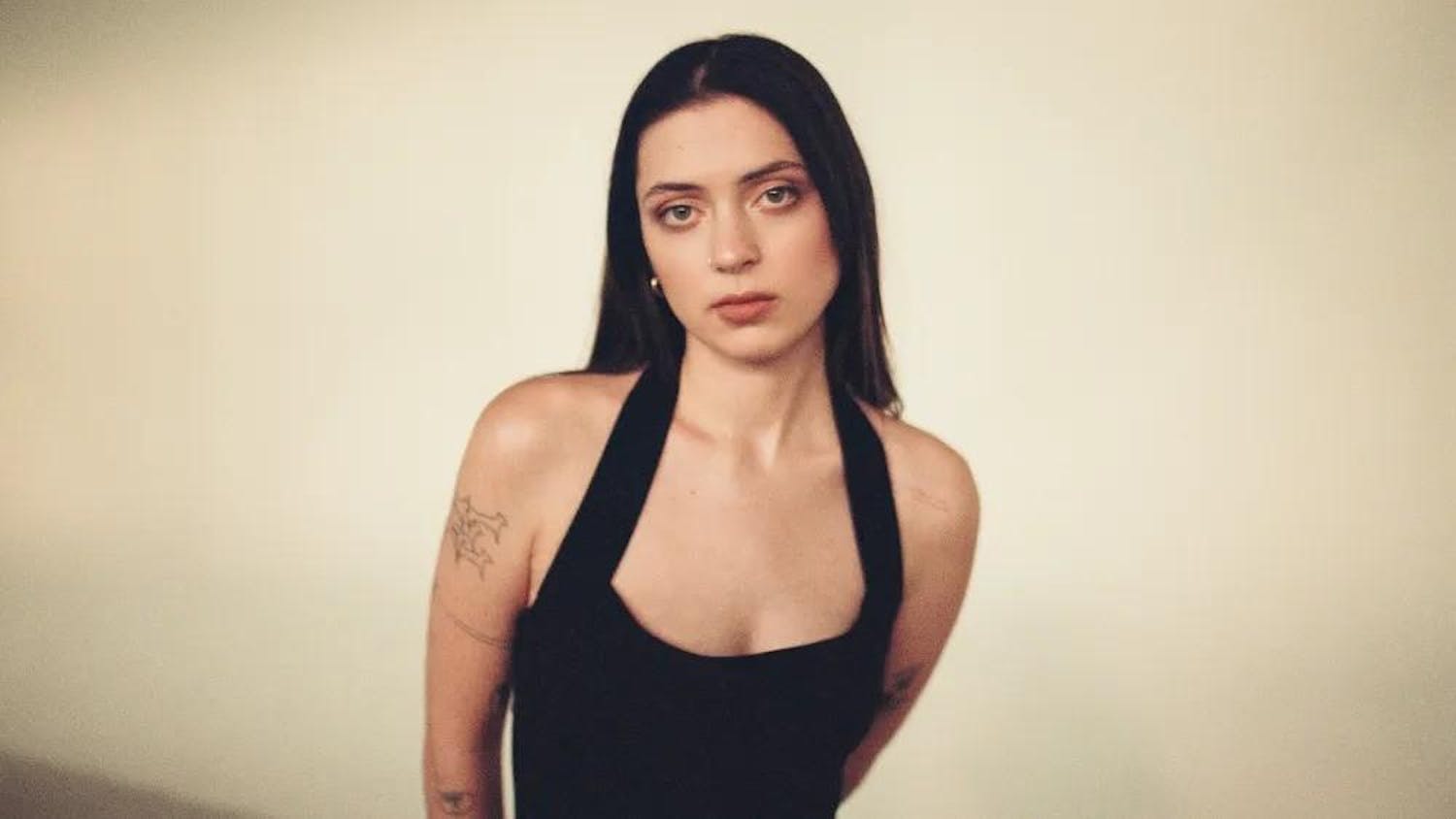With all the hype that surrounds a show like “Equus” by Peter Shaffer, it takes great execution for a production to live up to expectations. Premiering Saturday night in the Downspace, Production Workshop’s newest show manages to do so, thanks to a talented ensemble cast directed by the skilled Ben Freeman ’13.
“I tried, in the last several months, to articulate what the play is about, to myself and to others, but I can’t,” Freeman said. “That’s why I thought that it would be fulfilling for me and would also be collectively inspiring to tackle something that is so difficult to grasp and so incredibly textured.”
The play is an intense and darkly comic examination of the minds of 17-year-old Alan Strang and his psychotherapist, Miranda Dysart, played by David Lee Dallas ’13 and Annie Kocher ’14, respectively. When seemingly untamable Alan blinds six horses, he finds himself engaged in a series of cross-examinations with Miranda. The dialogue that ensues is expositional, suspenseful and holds the audience in a vice grip.
The acting in “Equus” makes the show. While you might expect the usual Broadway gimmickry, this production relies instead on moment-to-moment acting and clever directing to bring the ambitious spectacle to life.
“The show’s so brutal, and Ben’s the opposite of that, he’s very nurturing. That really helped the process,” Dallas said.
The show features nudity — an element that has inspired its notoriety. “I’d be lying if I said I wasn’t aware of it, but I didn’t think about all those things,” Dallas said. “There isn’t a particular way to be naked — it’s just that eventually you stop wearing clothes.”
Dallas is riveting as the unbridled Alan — a deluge of energy, psychotic rage, comic timing, mystic charm and childlike empathy. Another highlight of the show is the layered performance by Karin Nilo ’14 as Jill, a sympathetic character who serves as the perfect foil for the disturbed and disturbing Alan.
The play is also distinctly British. Shaffer’s minute colorations like rhyming slang in a cockney accent make the show even harder to perform.
All the actors sported distinct British accents, with great effort made to display the breadth of variation that typifies British dialects. In preparation, the actors “spent a lot of time just talking in British dialects, trying to inhabit a different sensibility,” Freeman said.
Horses are another key element of the show, animated by visible actors, snorting and champing at the bit. These puppets, designed by Liz Oakley '16, are more real than any mechanical deception could be. The horses, played by Sam Keamy-Minor ’16, Alexa Peseri ’14 and Marli Scharlin ’16, are an integral part of the setting and dialogue and are directly involved in the many crescendos of the show.
“I love horses, even though I don’t have much equestrian experience,” Freeman said, adding that members of the cast went to a stable to research with Connie Crawford, adjunct lecturer of theater arts and performance studies.
The character of Dysart is a man in the original script, and those who have seen previous productions of the play will find the gender change very compelling as it opens up different motifs than a conventional production of the show. “Hopefully there will be at least some people who see the show without knowing that the character was originally male and can have just the pure experience of what happens,” Kocher said.
“The process was really collaborative,” Kocher said. “I felt like every moment on stage, I was part of an ensemble, which was a really good feeling.”
Alan’s parents, Dora and Frank, played by Celeste Cahn ’15 and Thom Finley ’14, respectively, formed another strong component of this ensemble.
The show has a simple set, a little island stage surrounded by a circle of meticulously combed sand, with just a few benches moved around to accommodate different scenes. All the actors sit in full view just behind the stage in a semi-circle throughout the performance.
The torrent of tropes and themes in “Equus” is endless. Even after so many themes are addressed — family, jealousy, obsession, religion versus logic, nature versus nurture, sado-masochism, dreams and imagination — the play then turns on its side with disseminations of sexual repression, class divides, artistic expression and many other topics.
“It’s not a play that reflects my worldview. It doesn’t make me want to live in that world. But it leaves me with so many questions, and I’m thrilled by that,” Freeman said.
Combining psychotherapy, elements of theories by Freud and Marx, religious passions, the motif of obsession and possibly love, “Equus” will disturb you, horrify you and bring you to tears — all the while coercing you to laugh out loud.
“Equus” opens tonight at 8 p.m. in the Downspace of Production Workshop and runs every night until Feb. 11, with an additional 2 p.m. matinee Sunday. Tickets can be reserved online on the Production Workshop website or an hour before the show.
A previous version of this article incorrectly stated the puppets were designed by Sarah Gage ’15 and Becca Wolinsky ’14. In fact, the puppets were designed by Liz Oakley ’16. The Herald regrets the error.

ADVERTISEMENT




